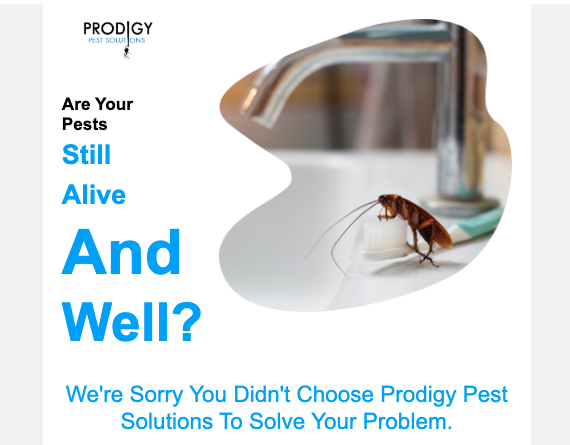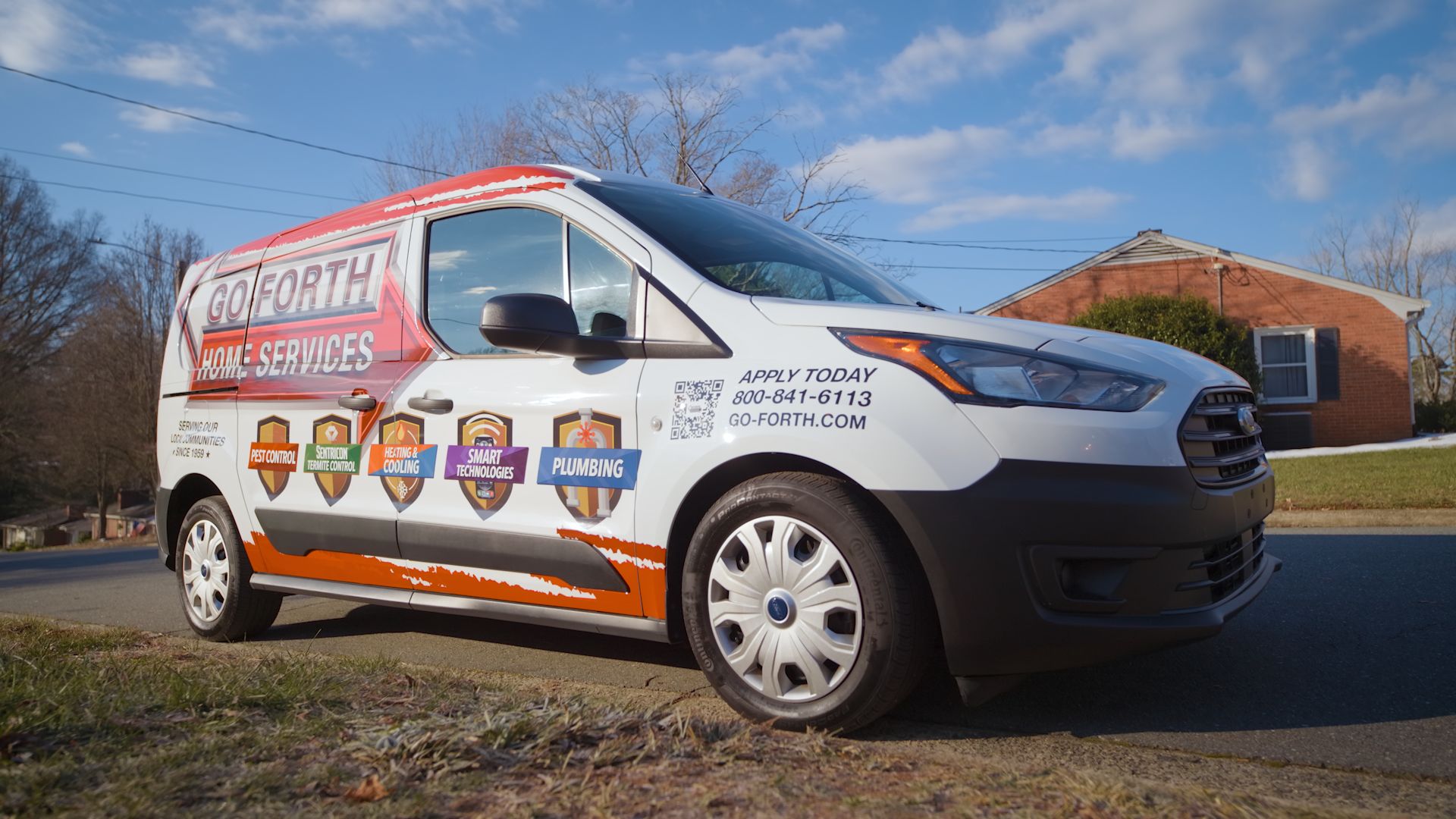How To Get Commercial Pest Control Contracts [Step By Step]

Securing pest control contracts grows business. To overcome challenges in developing competitive services, finding commercial clients, and bidding on profitable contracts, commercial operators follow strategies to build a commercial client base and increase contract renewals successfully.
These strategies enable commercial pest control operators to:
Market services competitively
Win more contracts
Boost revenue and profit
This article outlines how to identify contract opportunities, optimize marketing for a competitive advantage, and the steps to take to close more commercial service contracts.
Research and Identify Potential Clients
Research the characteristics of your target market to develop customized solutions to solve their pest problems.
To identify potential clients:
Perform market research: Identify potential clients' demographics and values. Use industry research, current client data, and surveys to develop the right services and prices.
Network with potential clientele: Meet business owners, property managers, facility operators, and hospitality industry professionals. Share your business contact information with those in government, medical, and educational facilities.
Use online tools: Online resources, such as Google Analytics, provide insight into what interests potential customers when they visit your website. Business software, such as FieldRoutes® commercial pest control software, enables you to view trend reports for the type of pest control services customers prefer.
Understand the goals, preferences, and pain points of decision-makers in your target market to develop services and packages that resonate with their needs.
Understand Client Needs and Regulations
The Environmental Protection Agency (EPA) and state agencies heavily regulate the pest control industry. Pest control service providers follow licensing and safety rules for the storage, transport, use, and disposal of pesticides and hazardous materials.
Clients in certain industries follow additional regulations to prevent pests.
For example, restaurants and hotels serving food must abide by federal and state food safety codes. This requires preventing cockroach infestations and other pest issues. Facilities that process, handle, or store organic products abide by the National Organic Program’s guidelines for pest treatment.
Understand the regulations of various industries to better market your services. Industry knowledge ensures pest inspections, products, and techniques meet industry guidelines and keep facilities pest-free.
Develop a Competitive Service Offering
Examine competitors to gather information about their services, prices, and niche markets. Use this data to evaluate your business and create strategies to gain a competitive advantage.
Consider these strategies for competitive services:
Provide specialized services: Most pest control companies provide termite and bed bug extermination, so consider additional services to set your company apart. Research integrated pest management (IPM), eco-friendly techniques, or landscaping services to reduce outdoor pests like ticks and wasps.
Focus on a niche market: Deliver services to niche markets, such as restaurant pest management. Capitalize on underserved markets by tailoring services to their specific demands.
Offer customized plans: Combine popular services with competitive prices to create industry-specific pest control plans and value-added services that capitalize on client needs.
Companies known for high-quality service and unique offerings stand out in a competitive environment. Use pest control technology to streamline daily tasks like estimating, scheduling, and invoicing.
FieldRoutes’ comprehensive functionality enables pest control businesses to create profitable estimates, efficiently schedule and route technicians, and simplify invoicing for faster payments.
Create Marketing Materials
Promote your business with a standout marketing strategy.
Perform market research to determine the best approach to generate pest control leads and measure performance. An omnichannel approach uses several channels to market your brand and message.
Marketing strategies include:
Online optimization: Optimize your website to attract clients. Use search engine optimization and online advertising to rank your business higher when potential clients look for your services online. Update business listings, manage online reviews, and post compelling social media content to attract more clients.
Email marketing: Email marketing can be used to convert leads into customers. Segment customers and send targeted, personalized messages for increased conversions.
Brochures, flyers, or postcards: Send direct mail pieces to certain types of businesses or commercial properties in a specific geographic area. High-quality content with a clear call to action attracts more clients.
Referrals: Create an incentivized referral program to encourage current clients to generate leads. Word-of-mouth referrals provide high-quality leads and expand your client base.
Automate marketing with ServiceTitan Marketing Pro integrated with FieldRoutes software. Use industry-specific templates to create and send targeted email and direct mail campaigns. View marketing performance at a glance to adjust campaigns for maximum return on investment.
Network and Build Relationships
Build a professional network to expand your commercial clientele. Once you’ve established a reputation for quality service, work with other professionals to receive referrals and recommendations.
Explore these networking avenues:
Local business groups: Attend in-person events to build professional relationships with others in diverse industries.
Industry associations: Join industry groups, such as the National Pest Management Association and state associations. Attend industry trade shows and conferences to network with other professionals and stay up-to-date on regulations, products, and technology.
Community outreach: Participate in local events and sponsor festivals or athletic teams to market your company and promote goodwill. It also allows the community to see the people behind your business and encourages potential client interaction.
Meet potential clients, but don’t stop there—nurture relationships with ongoing and transparent communication.
Reach Out to Potential Clients
Use various communication channels with potential customers to promote your company name and brand. Avoid high-pressure sales tactics. Rather, simply offer a solution for their pest control problem.
Outreach channels include:
Emails
Phone calls
Direct mail
Social media messaging
In-person meetings
Prepare in advance, respect their time, and clearly communicate your message when reaching out. Understand their needs based on the industry or size of the business to highlight the value your services provide.
Client reviews and testimonials can help establish confidence and trust. Obtain permission from your clients before using their testimonials or pictures in marketing materials or videos.
Negotiate Terms and Sign Contracts
Negotiation allows your client to address any issues before signing a one-time, quarterly, or annual service contract.
While not as common as with homeowners, commercial clients can dispute contract terms such as the scope of work or payment dates.
Communicate with your client ahead of time to understand their priorities and concerns. Cooperation and flexibility go a long way toward closing the deal and establishing a long-term client relationship.
Typical contract details include:
Scope of services
Frequency of services
Price
Payment terms
Terms and conditions, such as warranties, liabilities, late fees, and cancellation policy
Document every detail in the contract and consider hiring a lawyer to review it to avoid potential legal issues.
How to Bid Commercial Properties for Pest Control
Unlike residential pest control, bidding for pest control services for a commercial property is more complicated due to the property size, special requests, and competitive bidding.
Follow these steps for accurate and profitable commercial pest control bids.
1. Research the Property and Client Needs
When a potential client seeks a pest control bid, gather details on business information and property data.
Initial property details include:
Location
Type of business, such as an apartment complex, office, or manufacturing facility
Size of building
Layout
Pest control issues
Research industry-specific requirements to provide effective solutions that meet business guidelines and standards.
2. Schedule a Site Visit
A site visit provides details for a comprehensive scope of work. It allows you to see the facility's layout and communicate with the client to understand their needs.
A site visit helps you identify:
Number of units or rooms
Square footage or size of spaces
Type of infestation
Structural and environmental conditions
Ask about client special requests and other considerations, such as the best times to apply treatment due to the presence of employees, patients, or students.
A pest control inspection checklist streamlines the inspection process for accurate bidding calculations, quality service, and customer satisfaction.
3. Determine the Scope of Work
Using information from the site visit, prepare a detailed scope of work that outlines proposed pest control services, frequency, and the contract timeframe.
The scope of work contains:
Description of services: Use information from the site visit to explain the pest problem and your solution. This includes additional inspections or monitoring to gather further evidence.
Treatment areas: Define the areas needing treatment, such as a building’s exterior or specific rooms.
Proposed methods: Itemize clean-up and treatment methods, including vacuuming, traps, baits, and pesticides. Include recommended preventative measures.
Visit frequency: Outline visit and treatment frequencies, such as bi-monthly, monthly, or quarterly.
Make note of any special requests, requirements, or exclusions to avoid potential disputes.
4. Calculate Costs and Pricing
It’s challenging to create a competitive yet profitable bid. To accurately price a job, you must understand your labor, material, equipment, and overhead expenses.
Pricing takes into account:
Property size
Project complexity
Pest severity
Visit frequency
Requested services
Your proposal price also includes proper profit margins and markups. FieldRoutes pest control estimating software enables businesses to factor in accurate costs, profit margins, and markups for profitable bids.
The bid proposal clearly explains your pest control company’s experience and quality work to communicate the value of your price to clients.
5. Prepare and Submit a Bid Proposal
Submit a well-designed, well-written, and organized bid. Consider using a bid template with graphics and plenty of white space to create an easy-to-follow format.
Include these sections in a bid proposal:
Cover page
Executive summary
Scope of work
Pricing
Terms and conditions
Supporting documents
Signature page
Before submitting the bid, find out how the client wishes to receive it. Follow any bid submission rules, such as submission due dates or other requirements.
6. Follow Up and Negotiate
You’ve submitted the bid but haven’t heard from the client. Now what? Follow-up is the crucial next step.
While there’s no definitive rule, businesses typically follow up with clients three to five days after submitting the proposal. Find out if the client received the proposal and if they have any questions. Use pest control software to set follow-up notifications for open proposals.
Negotiate with the client if they decide to change the scope of services or treatment frequency. If price is the sticking point, be wary about sacrificing profit to gain a client because your pricing strategy sustains business for the long term.
7. Finalize the Contract
Once the client agrees to the contract, it’s time to finalize the agreement.
Consider obtaining legal advice to ensure the contract meets appropriate legal guidelines and contains fair terms and conditions.
Review the contract with the client before signing. Finalize the contract with signatures and the date.
Win Commercial Pest Control Contracts With the Right Technology
While generating commercial contracts is crucial for generating revenue, it won't improve long-term growth unless businesses deliver quality service, effectively manage contracts, and retain clients.
FieldRoutes simplifies commercial contract management with automated client communication, the ability to consolidate multiple units into one invoice, and tools to ensure on-time renewals.
Enhance customer satisfaction with pest reporting compliance and in-depth pest trend reports. Convenient payment options allow customers to pay automatically or with a credit card through an online customer portal.
FieldRoutes is the all-in-one solution to optimize pest control operations and improve efficiency, performance, and profit.
Ready to grow your business? Schedule a demo today.
Frequently Asked Questions (FAQs)
Find answers to commonly asked questions about the pest control business.
Q1. How Do I Get Clients for Pest Control?
Pest control businesses obtain clients in several ways.
These methods include:
Word-of-mouth referrals
Networking
Online leads
Email
Direct mail
Develop a marketing strategy to identify clients. Measure your return on investment (ROI) to focus on the most effective marketing methods.
Q2. How Do I Make a Pest Control Contract?
Many pest control businesses use a template to create pest control contracts. It simplifies the process, looks professional, and ensures you include important information.
FieldRoutes provides templates and mobile tools for pest control businesses to quickly create contracts and capture digital signatures. This speeds up the process and increases your team’s productivity.
Q3. What Is a Pest Control Service Agreement?
A pest control service agreement, also known as a pest control contract, is a formal document outlining the description of work and the price for pest control services.
A service agreement covers a one-time visit or includes monthly, quarterly, or annual service. A service agreement provides clarity for your clients and legally protects your business.





